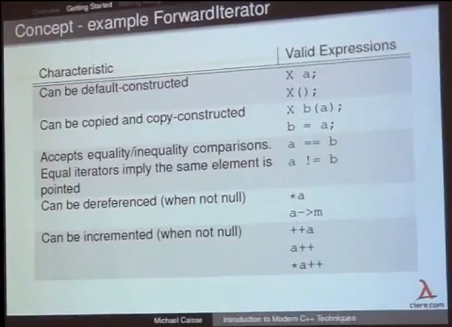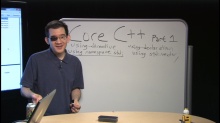Introduction to Modern C++ Techniques -- Michael Caisse
 Brilliant talk from Michael Caisse from C++ Now 2012.
Brilliant talk from Michael Caisse from C++ Now 2012.
Introduction to Modern C++ Techniques
by Michael Caisse
Topics include:
- Policy Based Design
- SFINAE
- Tag Dispatching
- Traits
- Curious Recurring Template Pattern
This is a two part video series. Links:
- Part 1: http://www.youtube.com/watch?v=9TFV2JxX7L0
- Part 2: http://www.youtube.com/watch?v=urshrBatNo4
Enjoy!

 On vector<bool>
On vector<bool>
 Higher-Level C++ with the Boost Libraries
Higher-Level C++ with the Boost Libraries Universal References in C++11
Universal References in C++11

 Core C++, 5 of N: Explicit and Partial Specialization -- Stephan T. Lavavej
Core C++, 5 of N: Explicit and Partial Specialization -- Stephan T. Lavavej From Scott Meyers' blog:
From Scott Meyers' blog: